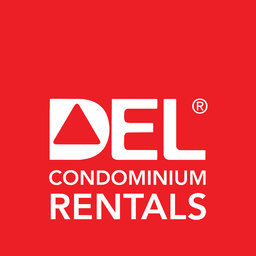16 Jun How to Detect—and Avoid—Rental Scams
Rental vacancy rates in Toronto are low—and even lower for Toronto condominiums, where just 1.2% of units are ready to be someone’s new home. With the urge to jump on that excellent rental before someone else snags it away comes an unfortunate side effect: a rise in rental apartment and condominium scams. Here’s how to sniff them out and not get taken in by those questionable folks who’d rather take your money and leave you hanging on moving day.
Know Your Average Rents
Any scam requires bait, and a rental rate that’s too good to be true is your first—and major—red flag. There’s such thing as an absolute steal when it comes to renting in Toronto, but if someone’s offering a downtown one-bedroom for three-quarters the cost of every single one of its neighbours, unfortunately it’s more likely that something doesn’t add up.
Once you decide which neighbourhood you’re looking to settle into, look at a few sets of rental listings as well as news articles to get a sense of what the average condo in that area rents for. It’ll not only help you pick your neighbourhood and budget well, but that’s the knowledge that can most easily keep you from getting drawn into a rental scam.
The Invisible Condominium Problem (or Landlord, or Lease)…
So you’re all set to see this condo unit, but there’s one problem: The landlord doesn’t live in town—the classic phrase is “I’m a business person who travels abroad”—and only wants to communicate by email. There’s nobody local to show you the place. Or your prospective landlord has met you outside for a showing—but doesn’t want to show you around inside.
All these flags? They spell trouble.
Yes, they might have pictures. But in a 2014 scam which hit renters from Toronto to Vancouver, in which the fake landlord sent pictures of the inside of a third-floor condominium unit—but the catch was, units at that address started on the fifth floor. Photos of a unit can be lifted easily from real estate listings or plainly faked. One quick way to check if those photos are legit is to run a Google image search to see if those photos show up anywhere they don’t belong—like on a real estate site, or rental listings for multiple other addresses. If so, you’ve just found a scam artist, not a landlord.
On the whole, if the potential landlord gets a little too nervous about letting you inside the property, makes excuses to avoid it, or cancels viewings without explanation, it’s quite possible that the front of this building is exactly that, a front, and they don’t own this space at all.
Make sure, whenever you’re renting a unit, you physically see the inside of that unit—or if you’re renting a property from out of the city to move into for work or school, have a trusted friend or colleague check it out in person, or look into hiring a reputable rental agency to be your eyes on the ground and pre-clear any property before you consider it.
Lease First, Payments to the Back
Beware—strongly—of anyone who wants you to write a cheque—or especially wire or pay cash—for a first and last month’s rent without having signed a paper lease. It’s never, ever a good idea to put down money for any upfront deposit before the lease is signed.
If you feel like your prospective landlord is pushing for money upfront, or if they say those magic words—”We don’t need a lease”—pick up and get right out of there.
Furthermore, if you’re being asked to wire money—which is less recoverable than cheques, especially when sending overseas—that’s a significant red flag. While it’s true that many Toronto condominium rental units are owned by overseas investors, landlords who are business-minded enough to keep a rental condo in another country are also business-minded enough to hire a management or leasing company locally to manage it, and there should be a manager or agent available in the city.
Professionalism is key
It’s the inconsistencies that sometimes can mark someone who’s not so much renting a condominium but playing a part. Does the email address that writes back to you match the name of the contact? Do your contacts with this landlord come from multiple email addresses?
Likewise, while “I’m a travelling business person” is the standard for apartment scams, does this person act the part of who they claim to be? Are they asking you for references, a credit check, letters of employment, and the other tools they could use to make sure you’re a good tenant? If they’re a little too eager to skip the steps that protect a landlord from bad tenants, they might not be interested in having you as a tenant at all—just in your deposit.
Further, if a landlord solicits extra personal information—”Tell me about yourself, so I can decide if you’re the kind of person I want to rent to!”—but don’t want to give information back, be careful: that’s more a rhetorical tactic than a question, designed to create a situation where you’ll worry about being the kind of person who can get this condo unit—and not ask the hard questions of the prospective landlord.
Ask Questions. Lots.
As always, when looking at a potential home, more questions—and more detailed questions—are your friend. Ask about the landlord, their plans for the property, its history, the rent and utilities; anything you’d normally ask.
If anything about the process feels rushed, off, or gives you an uneasy feeling—wait. And ask the landlord for an extra day or two.
If your prospective landlord gets a little weird and evasive—or a lot weird and evasive—when you ask questions about leases or proper legal procedure, or if they can’t quite answer questions about the area, the property, or their plans in concrete detail, check out all the rest of the signs of a scam and see if they add up. Most people aren’t actually built to lie happily or well (it’s science!) and the best-laid con game can fall apart because human beings, as always, are only human.
—
So, if you’ve run into a rental scam, what to do? Report, report, report. Drop a line to the Canadian Anti-Fraud Centre, file a report, and help make sure nobody else gets caught in this particular trap.
Stay smart, and happy renting!



No Comments